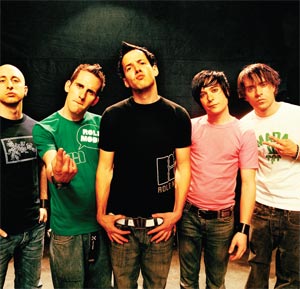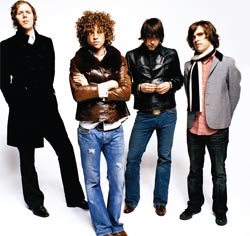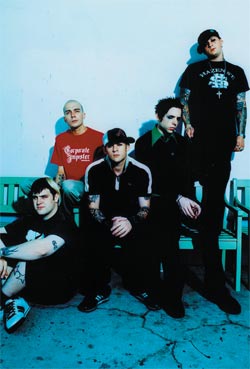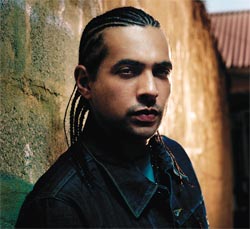It takes more than luck or charm to mingle with musicians. For a music publicist, it’s a high-pressure, full-time (and then some) way of life. Think you’ve got what it takes?
If you think working in the music marketing and publicity business is all rubbing elbows with rock stars and attending fabulous parties, then you’ve been misinformed. Making it in the music industry is notoriously difficult— everyone wants in, and there are limited positions available. So how do you do it? With
hard work. (Lots of it.)

Being a publicist for a recording label is a bit of a juggling act. You need to be able to handle anything at any time, while maintaining a consistent professional calm. “You have to be a great communicator with excellent organizational skills,” says Erica Silver, director of national media relations for Sony BMG Music Canada. “It can get pretty chaotic on the road with an artist, so you have to be able to handle pressure with ease and flexibility.” Jonathan Elder, national publicity for Warner Music, agrees. “To be successful in this industry, you need to have patience, flexibility, and drive. And you have to be prepared to work extremely hard,” he says. “Eventually you’ll be rewarded.” Chris Budd, director of marketing and rep for television and film licensing for the independent label Aporia Records stresses the importance of confidence and personality. “People in this industry have to be outgoing,” he says. “You have to be able to walk up to anyone and start from scratch. The successful ones are those who can get other people excited about the music they’re representing.”

So what do they do?
Publicists have a full day of work from dawn to dusk.• Call the media to set up interviews to promote album releases and tour dates.
• Book hotel rooms or venues for press interviews.
• Arrange catering, hotels, and flights when needed.
• Make press kits, which include writing press releases and biographies.
• Organize visual tools, including photos and copies of videos.
• Send out regular press updates of the artists’ activities (award nominations, TV appearances, tour dates, etc.) to create and build a profile.
Getting people excited is really the ultimate goal.
Your passion for the music you represent should be so great that you just can’t help but tell the world. “It’s like doing a public service,” says Budd. “It’s a good feeling to know that you’re helping put great music out there for others to hear.” Silver is also extremely passionate about music. “I’m the one who sings in the shower and the car, and who pulls a Tom-Cruise-in-Risky-Business move in the living room,” she says.



Getting to know people in the industry is crucial.
“There is a bit of ‘who you know,’” says Silver, “so I suggest starting at a small, independent label instead of a large one. If you intern at an indie label, there is a better chance you’ll gain the valuable skills needed to break into the business. At larger companies, you might not get the one-on-one training.” She also recommends volunteering at local music festivals. “There is so much opportunity out there to gain experience,” she says, “so go out and immerse yourself in your passion.”
The more you get your name out there, the more likely the right person will remember you at the right time.
“It can be frustrating, but introducing yourself to people in the business is important,” says Budd. “You invest a lot of time emailing and calling people who may not call you back. You can’t take it too personally when you have to re-introduce yourself. A lot of it has to do with timing. There’s a fine line between bothering the hell out of someone and keeping your name on his or her radar.” Budd suggests getting things started on your own to let people know you’re serious about the business. Contribute to a music website or blog, or podcast your favourite tunes over the internet.

So, what are the best things about working in the music marketing industry?
“Being immersed in music and stuff I love, that’s the best part,” says Elder. “Even the stuff that drives me mental!” And, we couldn’t help but ask: have you ever had to separate a high maintenance star’s Skittles? Well, you may be surprised, but the answer is no. (Although a good publicist won’t tell you anyway.) Protecting the privacy of your artists is highly important—your reputation is everything and spilling secrets will get you nowhere. For Silver, the best thing about the job is that each day is different, and you never know who you’re going to meet. “I get to work with interesting and creative people every day and you’re not locked into a pattern like other jobs,” she says. As with anything in life, however, with the benefits come challenges. “Of course, not everyone is open and friendly and sometimes you meet personalities that don’t gel with your own. But you always have to be professional. It’s your job to make sure everything goes smoothly and to ensure the artist gets excellent media coverage.” For many music lovers, working in the industry is the ultimate day job. But, if you have the dream, you need the drive, because there’s always someone else who would do anything to get it as well. As Silver says, “I know I have someone’s dream job, so I try never to forget that.”
You know who?
Jonathan Elder’s workday often ends well past midnight making sure things run smoothly for his touring celebs. (Okay, so there is some elbow rubbing.) Jonathan Elder works with Sean Paul, Simple Plan, Hot Hot Heat, Buck 65, and Death Cab For Cutie.
Erica Silver works with Good Charlotte, Kalan Porter, Jessica Simpson, Celine Dion, Travis, and Tony Bennett.
Stay in school
Passion, personality, and ambition go a long way in this business. But, education is important as well. A degree in public relations, communications, or journalism is recommended. And check out specialized schools with entertainment or recording management programs such as The Trebas Institute (www.trebas.com), The Harris Institute for the Arts www.harrisinstitute.com), and The International Academy of Design and Technology.
“Specialty schools can be pricey and they’re not for everyone,” says Budd, “but [they] can be helpful for making connections in the industry. The professors know people at labels, and they can help you land an internship.”


What Do You Think? Leave A Comment!